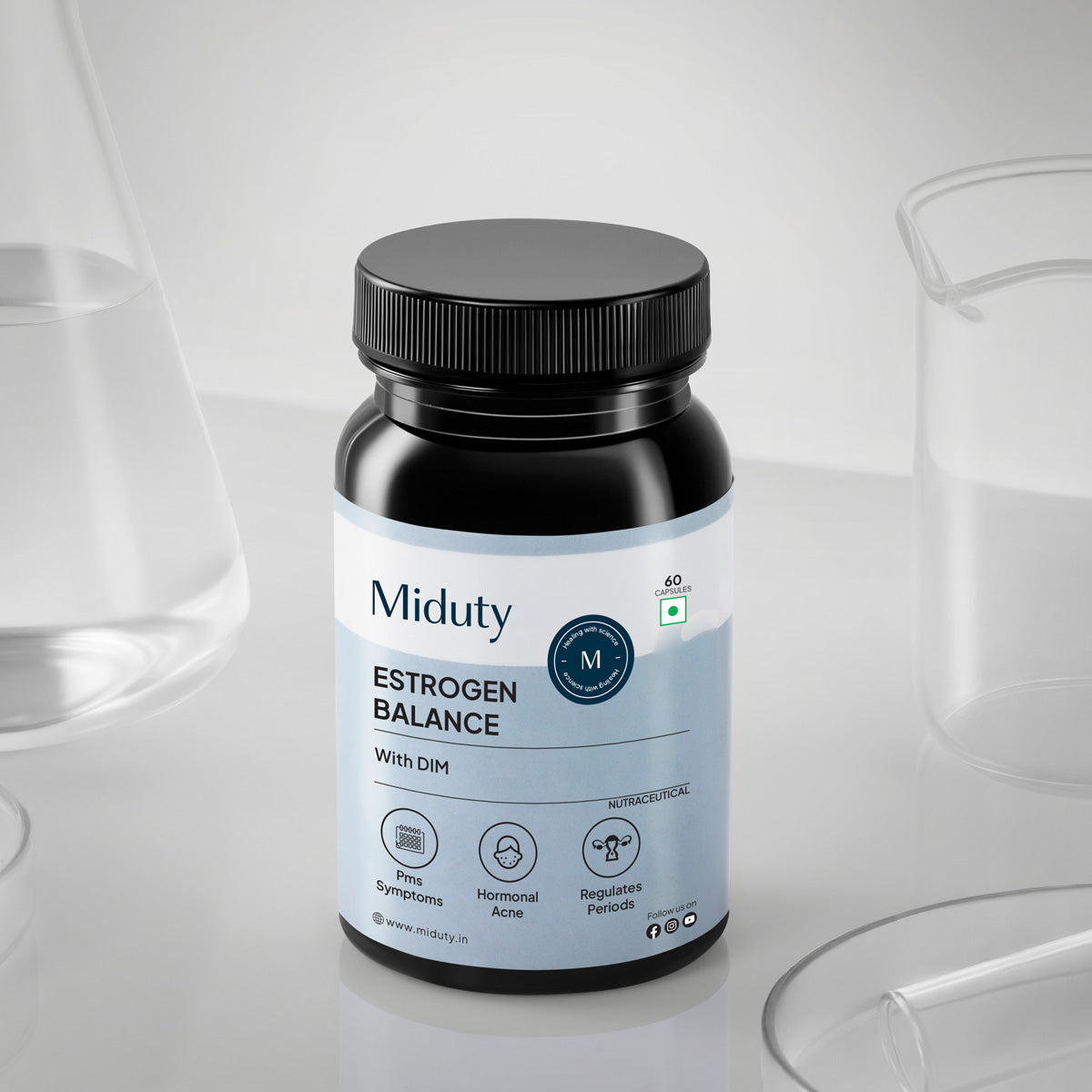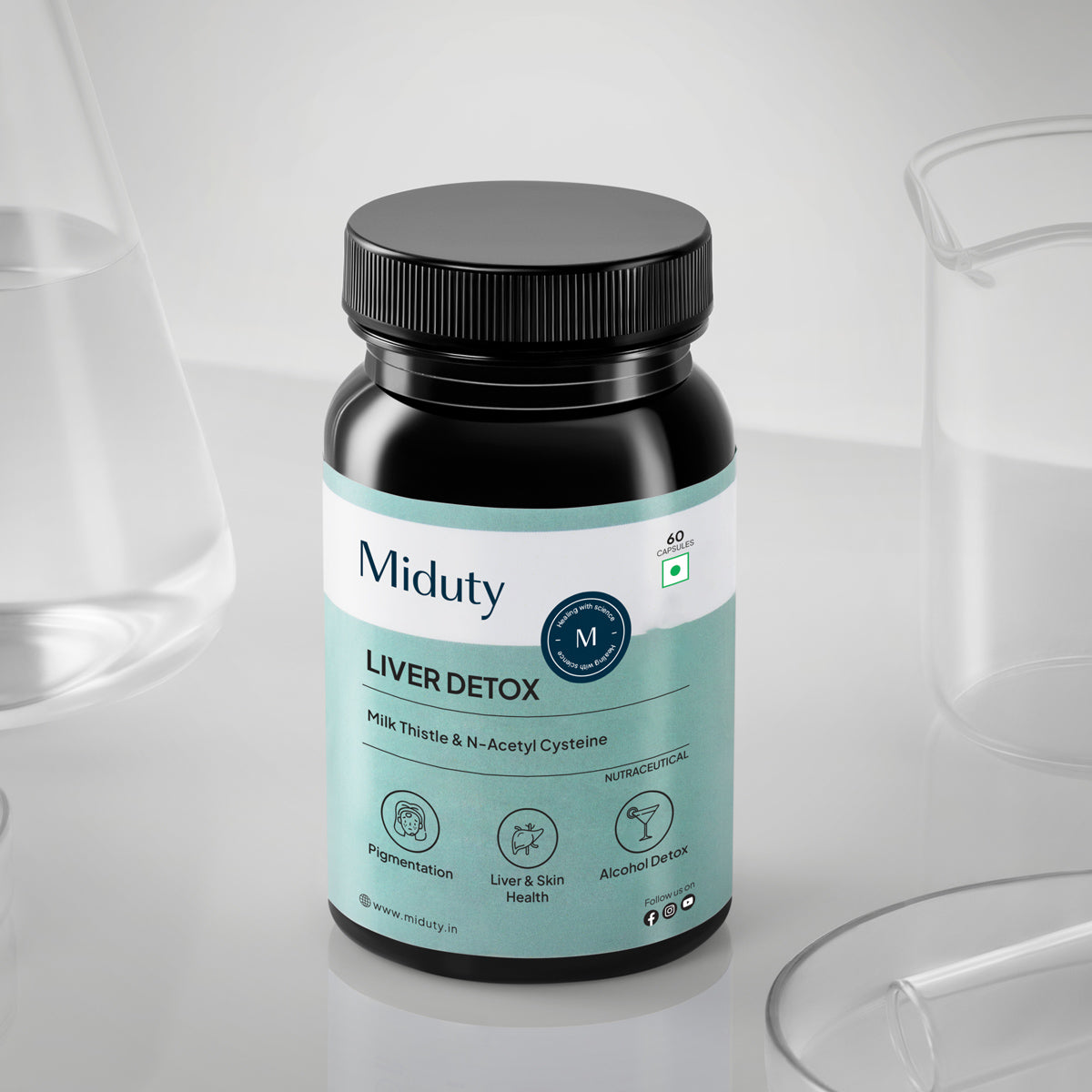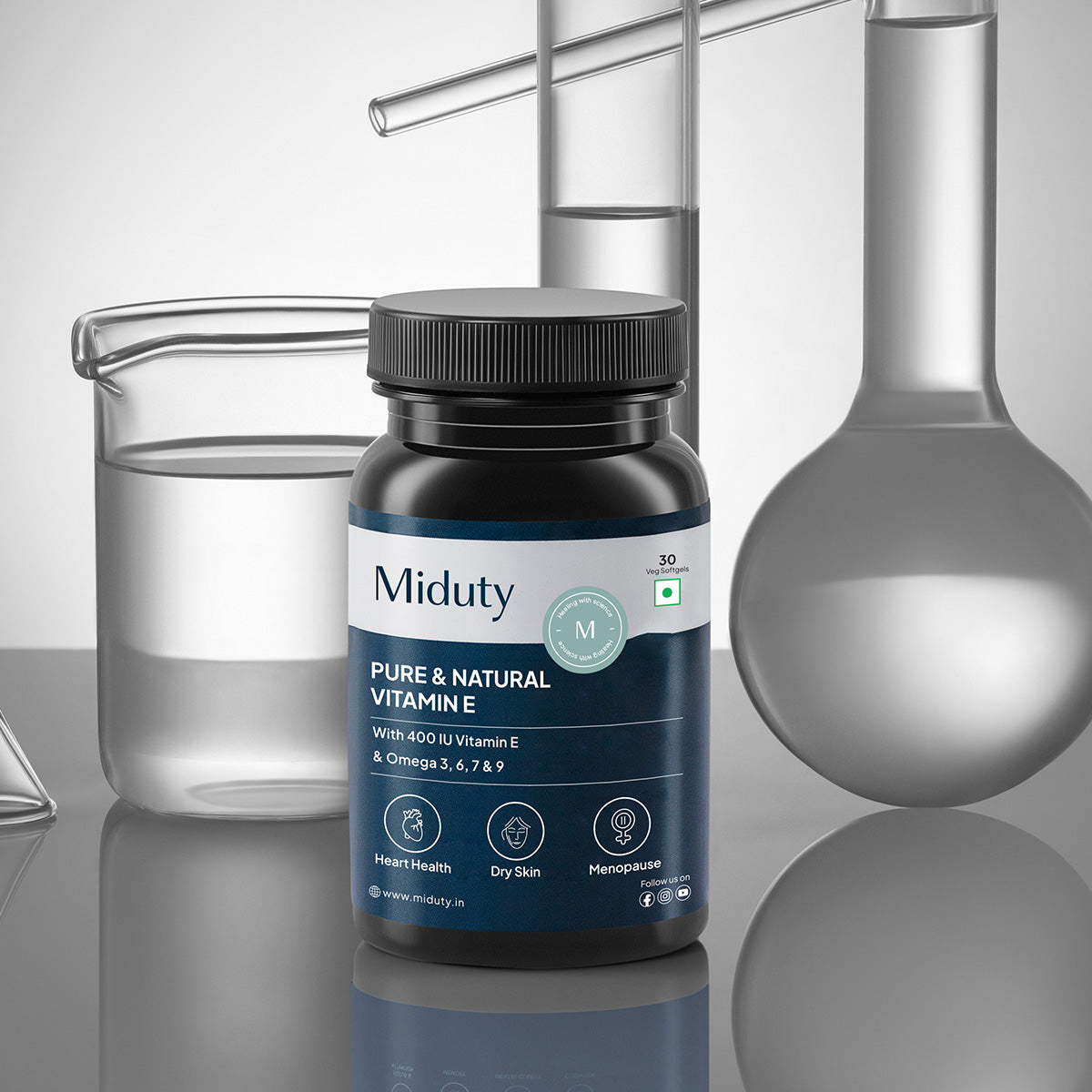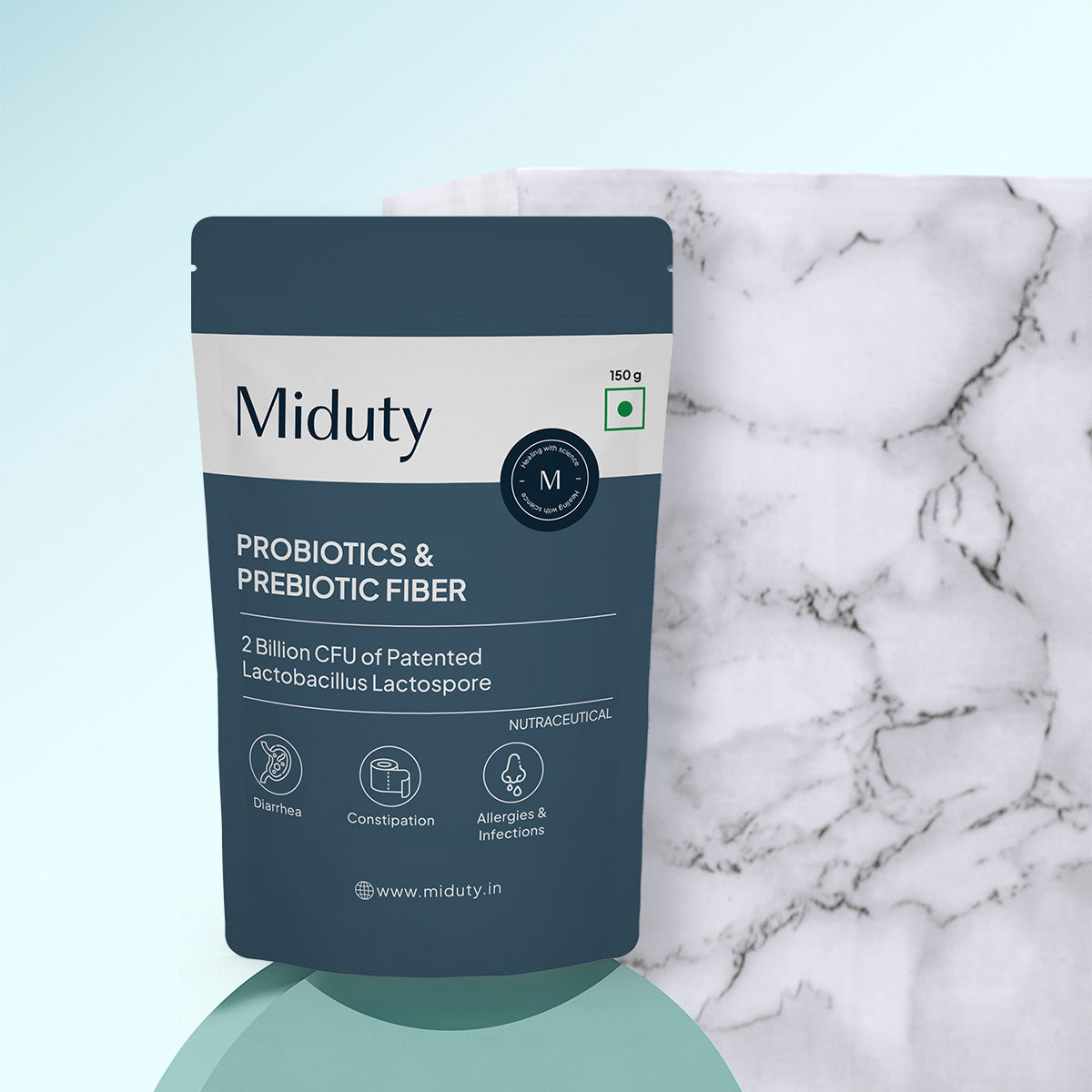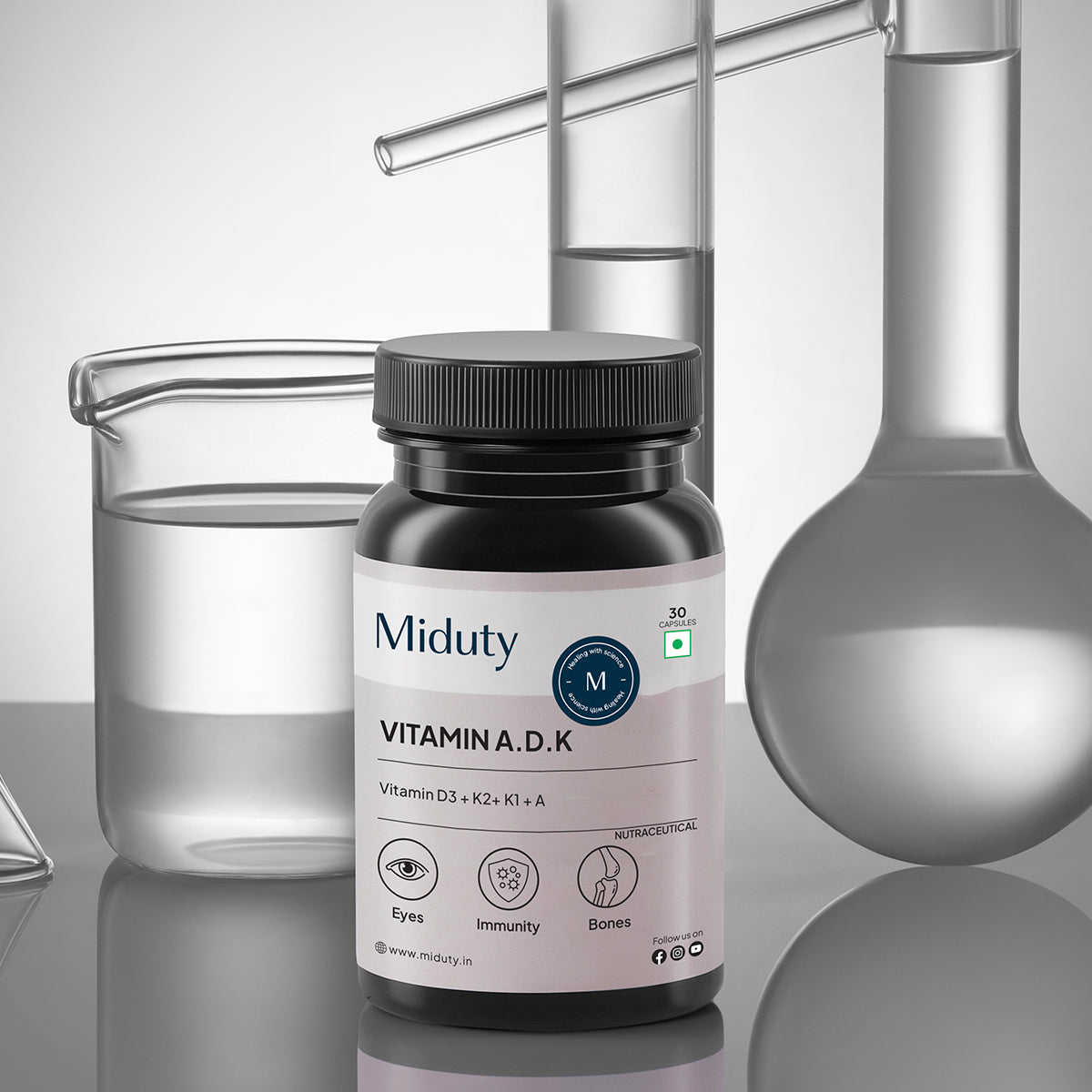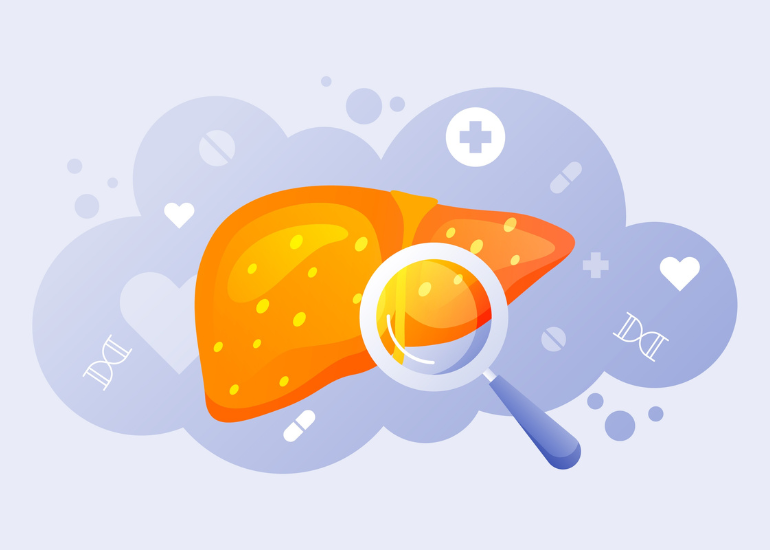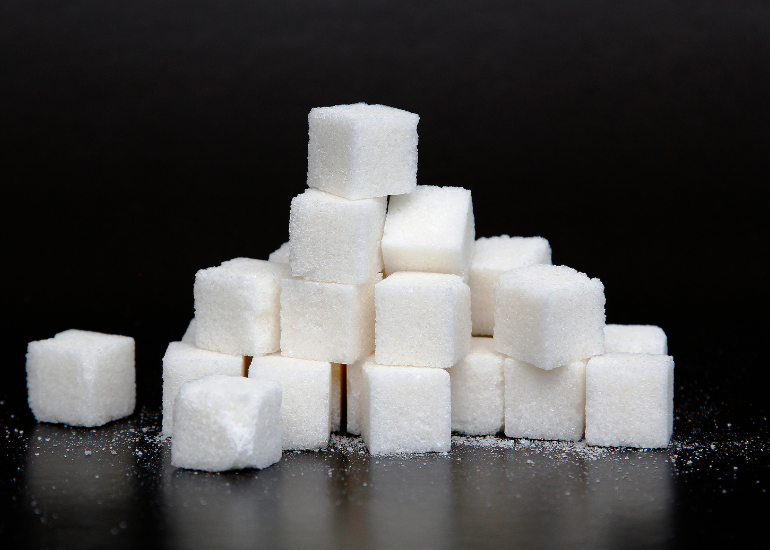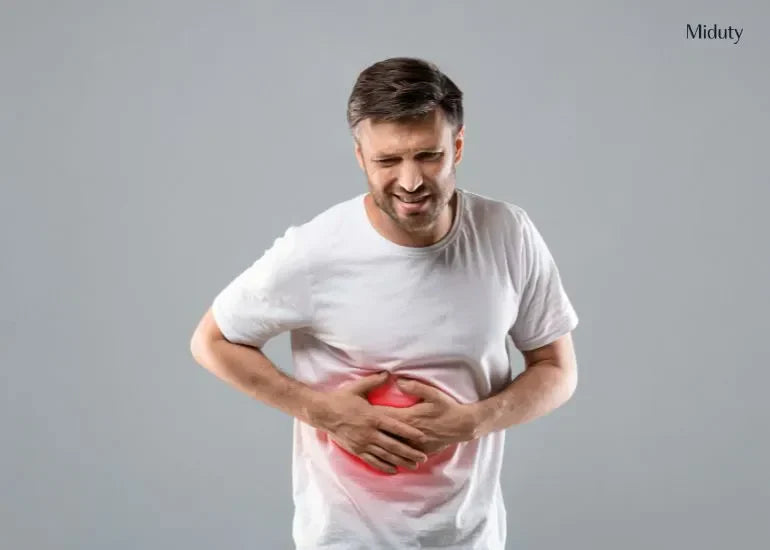
Fatty Liver & Menopause: Estrogen (Hormonal) Impact on Liver Health
When we think of menopause, the first things that come to mind are hot flashes, mood swings, and disrupted sleep. But what if we told you there's a silent organ taking a hit too. Your liver!
Yes, there's growing evidence that links menopause and fatty liver disease. As estrogen levels drop, women experience profound changes in metabolism, fat distribution, and insulin sensitivity. One of the lesser-known but deeply impactful outcomes? Fat starts accumulating in the liver.
Research shows that non-alcoholic fatty liver disease (NAFLD) now more often called MASLD (metabolic dysfunction-associated steatotic liver disease) is rising sharply in postmenopausal women. Due to Hormones. More specifically, the loss of estrogen, which plays a surprisingly protective role in liver function.
In this article, we'll uncover how menopause transforms the hormonal landscape, how that impacts liver health, and what women can do to prevent or reverse fatty liver damage.
Key Takeaways
1. Menopause Directly Impacts Liver Health: As estrogen levels drop during menopause, your liver faces a triple threat: increased fat accumulation, rising inflammation, and reduced detox ability. This hormonal shift significantly raises the risk of developing non-alcoholic fatty liver disease (NAFLD) or MASLD.
2. Postmenopausal Women Are at Higher Risk: Studies show postmenopausal women are 1.5 to 2 times more likely to develop fatty liver disease than premenopausal women. Even women of normal weight aren't safe; changes in fat distribution and insulin sensitivity make liver damage more likely.
3. Estrogen Is the Liver's Unsung Hero: Estrogen regulates fat metabolism, inflammation, and glucose control in the liver. Lower estrogen leads to visceral fat buildup, insulin resistance, and mitochondrial stress creating the perfect storm for liver dysfunction.
4.Start Moving Now: Just 30 minutes of moderate exercise a day brisk walking, dancing, or weight training can reduce liver fat by up to 40%. You don't need a gym membership, just a commitment to daily movement.
5.Eat to Detox: A simple shift to greens, fatty fish, and olive oil can cut liver fat and lower inflammation fast. Bonus: it eases menopause symptoms and improves heart health too.
6. Not Taking These Supplements? Milk thistle, omega-3s, and probiotics are clinically backed to support liver repair and hormonal balance during menopause. When combined with lifestyle changes, they can amplify your liver recovery naturally.
What Is Fatty Liver Disease?
In Fatty liver disease your liver normally contains a small amount of fat. But when more than 5-10% of its weight is fat, it's considered a fatty liver. This isn't just a cosmetic issue, it's a serious metabolic warning sign.
There are two main types:
1. Alcoholic Fatty Liver Disease (AFLD) - caused by excessive alcohol.
2. Non-Alcoholic Fatty Liver Disease (NAFLD or MASLD) - not related to alcohol, but strongly tied to obesity, insulin resistance, and hormonal changes.
NAFLD affects up to 25% of the global population, but among postmenopausal women, the prevalence is even higher; some estimates put it at over 40%.
This matters because fatty liver isn't just about fat. If left unchecked, it can progress to NASH (non-alcoholic steatohepatitis), which involves liver inflammation, fibrosis (scarring), cirrhosis, and even liver cancer. And since this progression is often silent, many women don't know they have a problem until it's too late.
NAFLD is becoming the leading cause of liver transplants in women, and menopause plays a significant role in this trend. The link lies in hormones, especially the protective ones lost during menopause.
The Connection Between Menopause and Fatty Liver
During menopause, estrogen, the hormone that governs everything from reproduction to metabolism, declines significantly. But the changes aren't just limited to the reproductive system. This drop in estrogen triggers a lot of metabolic dysfunctions that affect multiple organs, especially the liver.
Several studies have observed a clear rise in fatty liver cases post-menopause, regardless of weight gain. One such study, published in Hepatology, found that postmenopausal women were 1.5 to 2 times more likely to develop NAFLD compared to premenopausal women of similar body mass index (BMI).
This is happening because:
- Estrogen normally enhances lipid metabolism, helping break down fat.
- It regulates insulin sensitivity, keeping blood sugar and fat storage in check.
- It plays a role in controlling inflammation, which is central to liver damage.
Once estrogen levels drop, the liver gets hit with a triple threat: more fat accumulation, more inflammation, and reduced ability to detoxify.
The risk is even higher in women who:
- Have abdominal obesity (common after menopause)
- Have insulin resistance or diabetes
- Lead a sedentary lifestyle
- Smoke or consume alcohol even in small amounts
And it's not just about fat fibrosis and liver scarring that appear to accelerate more rapidly in postmenopausal women, adding a new layer of urgency to the issue.
So if you're postmenopausal and struggling with fatigue, bloating, or unexplained weight gain, it may be time to check your liver. The culprit could very well be the hormones that are no longer protecting it.
How Does Estrogen Affect The Liver?
Estrogen works at a cellular level through estrogen receptors (ERα and ERβ) found in liver cells. These receptors regulate a variety of functions, including:
- Fat Oxidation (fat burning)
- Inflammation Control
- Glucose Metabolism
- Cholesterol Management
When estrogen binds to these receptors, it upregulates enzymes that help the liver break down fats and reduce oxidative stress. In other words, it tells the liver to stay healthy.
But when estrogen is withdrawn like during menopause this process slows down. Here's what the research shows:
A 2023 study in the National Library of Medicine demonstrated that lower estradiol levels are directly linked to higher liver fat content, especially in middle-aged women.
Animal models have shown that removal of ovaries (which simulate menopause) leads to rapid development of fatty liver, which can be reversed with estrogen replacement.
Furthermore, estrogen plays a role in bile acid synthesis, crucial for fat digestion. Less estrogen means reduced bile acid flow, impairing fat metabolism and contributing to liver fat accumulation.
How Does Estrogen Deficiency Lead To Fatty Liver?
1. Visceral Fat Accumulation
Estrogen usually helps distribute fat around the hips and thighs. After menopause, fat distribution shifts toward the abdomen, leading to visceral fat and dangerous fat around the organs, including the liver.
2. Insulin Resistance
Loss of estrogen increases insulin resistance, making it harder for your body to regulate blood sugar. This pushes more sugar into fat storage pathways, increasing liver fat.
3. Inflammatory Cascade
Estrogen has anti-inflammatory properties. Without it, there's an increase in pro-inflammatory cytokines like TNF-alpha and IL-6, which contribute to liver cell injury and fibrosis.
4. Mitochondrial Dysfunction
Estrogen supports mitochondrial function. Its loss leads to impaired energy production and oxidative stress in liver cells, worsening fatty liver conditions.
A 2021 study in Nature Reviews Endocrinology concluded that estrogen deficiency creates a "metabolic storm" that rapidly accelerates the onset of liver steatosis and fibrosis. In fact, postmenopausal women with low estrogen were shown to have a 70% higher risk of developing advanced liver disease compared to those with stable hormone levels.
Even normal-weight postmenopausal women are at risk, due to changes in fat distribution and insulin dynamics, not just overall body weight.
Estrogen deficiency sets off a chain reaction of liver dysfunction that's hard to ignore.
How Hormonal Changes Affect Liver Health?
While estrogen takes center stage in the discussion of liver and hormones, it's not the only player in the game. A host of other hormones fluctuate during menopause and each has its own influence on liver health.
1. Androgens (Testosterone & DHEA)
As estrogen declines, androgens like testosterone often become more dominant. This hormonal imbalance can worsen liver fat accumulation. Elevated testosterone in women has been linked to increased visceral fat, insulin resistance, and higher liver fat, especially in those with PCOS (polycystic ovary syndrome).
2. SHBG (Sex Hormone-Binding Globulin)
We mentioned SHBG earlier, but it deserves another spotlight. SHBG binds to sex hormones and helps regulate their action. Low SHBG levels are not just a symptom—they're a risk factor for NAFLD. In fact, some researchers propose using SHBG as an early biomarker for fatty liver risk in women.
3. Cortisol
Menopause can increase chronic stress and cortisol levels, which in turn contributes to fat storage in the liver and increased inflammation. Chronic high cortisol is a known trigger for metabolic syndrome, of which fatty liver is a key component.
4. Insulin
Insulin isn't a sex hormone, but its role during menopause is critical. As estrogen drops, insulin sensitivity also declines, making it easier for blood sugar to be stored as fat especially in the liver.
When you zoom out, menopause looks less like a simple estrogen drop and more like a hormonal domino effect with the liver often caught in the middle.
Lifestyle Adjustments: What Helps?
1. Exercise
The good news is that lifestyle changes can help reverse fatty liver even in postmenopausal women. With the right steps, it can heal itself.
If you're not moving, your liver is suffering. The evidence is regular physical activity reduces liver fat by 30-40%, even without major weight loss. Aim for a mix of:
- Aerobic activities: walking, cycling, swimming, dancing anything that gets your heart pumping.
- Resistance training: lifting weights or bodyweight exercises to build muscle and improve insulin sensitivity.
- 150 minutes of moderate exercise per week, or about 30 minutes a day for five days. Consistency beats intensity.
2. Weight Loss: Not Just About Numbers
Weight loss is about reducing visceral fat, the dangerous fat around your organs. Just losing 5-10% of your body weight can improve liver enzyme levels and insulin sensitivity.
3. Stress Management
Chronic stress elevates cortisol, which contributes to insulin resistance and liver fat. Prioritize mental health with:
- Daily meditation
- Yoga/ Nature Walk
- Journaling or therapy
- Deep breathing exercises
4. Sleep Hygiene
Sleep is the unsung hero of liver health. Poor sleep increases cravings, insulin resistance, and inflammation all bad news for your liver. Strive for:
- 7-9 hours of uninterrupted sleep
- Limiting blue light exposure at night
- Going to bed and waking up at consistent times
5. Avoiding Liver Toxins
- Limit or eliminate alcohol, even in small amounts
- Avoid unnecessary medications or supplements that can tax the liver
- Stay hydrated water supports detox pathways
These lifestyle changes aren't just about your liver; they affect every area of menopause, from mood to metabolism. Start small, stay consistent, and the results will follow.
The Liver-Loving Menopause Diet Plan
What you eat directly influences how your liver functions. Food either helps your liver detoxify and regenerate, or it bogs it down with toxins and fat.
1. What to Eat More Of:
- Healthy Fats: Olive oil, avocados, nuts, seeds
- Lean Proteins: Fatty fish like salmon, sardines, and tuna (omega-3s reduce liver inflammation)
- Leafy Greens: Spinach, kale, and arugula are rich in antioxidants
- Berries & Citrus Fruits: High in vitamin C and polyphenols, which aid liver detox
- Legumes: Chickpeas, lentils, and beans provide fiber and help stabilize blood sugar
2. What to Avoid or Limit:
- Refined sugars and carbs: White bread, pastries, soda
- Trans fats and processed foods: Chips, fast food, margarine
- Red meat and processed meats: High in saturated fat and salt
- High-fructose corn syrup: Found in many "low-fat" snacks
3. Meal Timing & Portion Control:
- Try intermittent fasting (12:12 or 16:8) if approved by your doctor or advised by a healthcare expert it helps with insulin resistance.
- Eat smaller, balanced meals throughout the day to avoid spikes in insulin and fat storage.
Top Supplements for Liver & Hormonal Health
Supplements aren't a substitute for a healthy lifestyle, but they can enhance your results, especially when you're navigating the double storm of menopause and fatty liver. Here are the most research-backed options that support liver function, hormone balance, or both.
1. Milk Thistle (Silymarin)
- Supports liver cell regeneration and detoxification
- Reduces inflammation and oxidative stress
- Typical dose: 250-500 mg daily
2. Omega-3 Fatty Acids
- Decrease liver fat and triglycerides
- Reduce inflammation linked to NAFLD
- Found in fish oil supplements (EPA/DHA)
- Dosage: 1,000-2,000 mg/day
3. Vitamin E
- Powerful antioxidant shown to reduce liver fat in people with NAFLD
- Particularly effective in postmenopausal women with low estrogen
- Should only be taken under medical supervision due to clotting risk
- Recommended dose: Up to 800 IU daily
4. Probiotics
- Improve gut-liver axis communication
- Help reduce inflammation and fat absorption
- Look for a diverse strain profile with at least 10-20 billion CFU
5. Vitamin D
- Helps modulate immune function and inflammation
- Many women postmenopause are deficient; check your levels.
Conclusion
Menopause doesn't just bring hormonal waves and mood swings it alters the health of your liver in ways most women never hear about. The drop in estrogen levels impacts fat metabolism, insulin sensitivity, and inflammation, creating the perfect storm for fatty liver disease.
Whether it's tracking your hormone levels, asking for liver imaging, exploring transdermal HRT, or making targeted lifestyle changes there are real, evidence-backed ways to protect your liver through menopause and beyond.
If you've read this far, consider this your sign to check in on your liver. Don't wait for symptoms. Don't assume you're fine just because your weight or blood sugar seems "okay." Your liver is quietly doing a thousand things every day to make sure it has the hormonal support it needs to keep doing them.
Frequently Asked Question on Fatty Liver & Menopause -
Q1. Does menopause increase fatty liver?
Menopause is linked to a higher risk of developing non-alcoholic fatty liver disease (NAFLD). This increased risk is largely driven by hormonal shifts, especially the drop in estrogen levels and age-related changes in body composition, including greater accumulation of abdominal fat.
Q2. How to support your liver in menopause?
To support your liver during menopause, focus on a balanced diet rich in antioxidants, maintain a healthy weight, stay physically active, and limit alcohol and processed foods. Incorporating liver-friendly nutrients like milk thistle, vitamin E and omega-3s may also help.
Q3. What is menopause liver?
Menopause liver isn't a medical term, but it describes the changes in liver structure and function that may happen during and after menopause. These shifts, mainly driven by hormonal changes and aging, can raise the risk of liver issues like nonalcoholic fatty liver disease (NAFLD).
Q4. Can hormonal imbalance cause fatty liver?
Yes, hormonal imbalances can play a role in the development of fatty liver, especially in women. Fluctuations in reproductive hormones like estrogen and androgens are associated with the onset and progression of non-alcoholic fatty liver disease (NAFLD). In particular, the drop in estrogen during menopause is a recognized risk factor for fatty liver in women.
Q5. How do you detox your liver for hormone balance?
To support liver detoxification and promote hormone balance, focus on eating a nutrient-rich diet with plenty of fiber, cruciferous vegetables, and antioxidants. Staying hydrated, reducing alcohol intake, and managing stress also help your liver process and eliminate excess hormones effectively.
References



